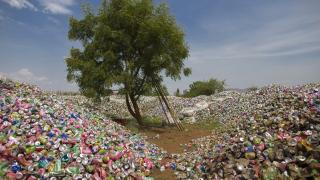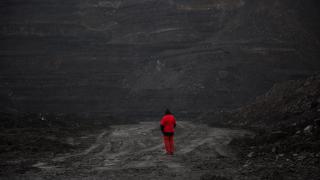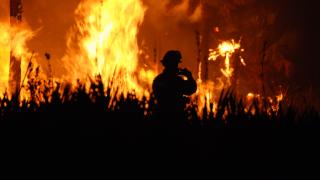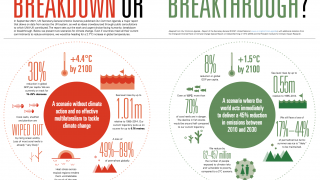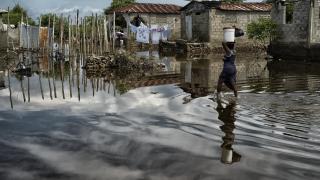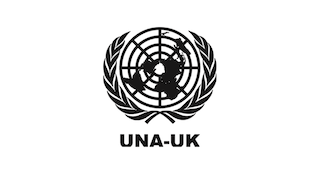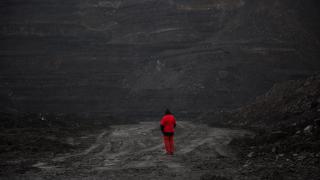
Ecocide is a word to articulate what is happening to our planet.
Etymologically, it means “to kill one’s home”. It’s a concept that brings together the many ways in which different habitats and natural systems – including our climate system – are being severely harmed and rolls them all into one word.
And once we grasp that encapsulating concept, an immediate moral response arises: this cannot continue.
Over the last two years, a global movement has been gathering momentum on addressing ecocide through international criminal law. In December 2019, supported by a nascent advocacy group now known as Stop Ecocide International, island nations Vanuatu and the Maldives became the first states to call for the Rome Statute of the International Criminal Court (ICC) to include ecocide – creating personal, individual criminal responsibility for key decision-makers. The Statute states that the Court’s jurisdiction “shall be limited to the most serious crimes of concern to the international community as a whole”, which it lists as genocide, crimes against humanity, war crimes and the crime of aggression.
Both countries are already experiencing the impacts of this existential threat, while being among those who bear the least responsibility for climate disruption. Their call sparked a conversation which is rapidly gaining traction on the international stage. Interest in criminalising ecocide is now a matter of public record at parliamentary and/or government level in at least 15 countries – via motions, resolutions, parliamentary questions, petitions, white papers or full proposals of law: Bangladesh, Belgium, Bolivia, Brazil, Chile, Finland, France, Luxembourg, the Maldives, Netherlands, Scotland, Spain, Sweden, the UK and Vanuatu; as well as at the European Parliament, the Nordic Council and the Inter-Parliamentary Union. Support for an international crime of ecocide has come from voices including Pope Francis, UN Secretary-General António Guterres, primatologist Dr Jane Goodall, activist Greta Thunberg and musician Paul McCartney.
This June, a panel of top international criminal and environmental lawyers drafted a legal definition of ecocide. Convened by the Stop Ecocide Foundation, the panel was co-chaired by internationally renowned UK barrister Philippe Sands QC and Senegalese jurist Dior Fall Sow. It produced this concise definition:
“Ecocide” means unlawful or wanton acts com- mitted with knowledge that there is a substantial likelihood of severe and either widespread or long-term damage to the environment being caused by those acts.*
The definition has received a warm reception in media and political spheres, and been welcomed by pragmatists and activists alike. The first threshold for the crime addresses the likely level of harm, while the second addresses the illegality or disproportionality of the conduct. The language is firmly based in legal precedent, drawing notably from the Environmental Modification Convention (known as ENMOD), the Geneva Convention on the protection of civilians during war and the Rome Statute itself. At the same time it makes a bold move towards ecocentricity (nature-centred) by criminalising acts likely to severely harm “any element of the environment”, which does not necessarily have to include harm to humans.
As indigenous cultures around the world acknowledge, humanity’s well-being is deeply bound up in that of nature – without healthy ecosystems, human health cannot be sustained. The fires, floods, droughts and diseases of the last two years have made it clear that the living systems nourishing human civilisation cannot be recklessly damaged without consequence. The recent Sixth Assessment Report of the Intergovernmental Panel on Climate Change (AR6) spells out the science with stark clarity.
Indeed, policymakers, investors, insurers and CEOs are all aware that profound systemic changes are needed if we are to move into a safe operating space for humanity. Ecocide law has the potential to support such changes, levelling the playing field for solutions – regenerative farming, renewable energy, circular economy – while providing a guardrail and guidance framework to ensure best practice. Beyond that, it has the potential to shift cultural assumptions and our understanding of our place in, and responsibility towards, the natural world.
While we cannot expect a new category of international crime to fix all our environmental woes – or even to prevent all ecocides – many believe it will have a strong normative effect that is conspicuously missing at present. Without a “hard stop” parameter acting as a kind of health and safety law for the planet, it’s hard to see how Paris Agreement targets or Sustainable Development Goals can reasonably be approached.
It’s abundantly clear that ambition and goodwill are not adequate to create the necessary action.
Stop Ecocide estimates that within 4–5 years countries could be ratifying this amendment to the Rome Statute. In the light of increasing climate impacts and a growing urgency to find concrete and workable solutions at scale, this simple legal approach could prove to be a key missing piece to create the bridge to a liveable world.
It may be just in time.
Jojo Mehta is Co-Founder (with legal pioneer the late Polly Higgins) & Executive Director of Stop Ecocide International, which operates at the intersection of legal developments, diplomatic traction and public narrative, acting as a facilitator and communications hub for global progress.
*The full commentary and core text can be found here in multiple languages.
Photo: UK: Reclaim the Power - End coal now. 300 people halted operations at the UK’s largest opencast coal mine in 2016. Credit: Kristian Buus





